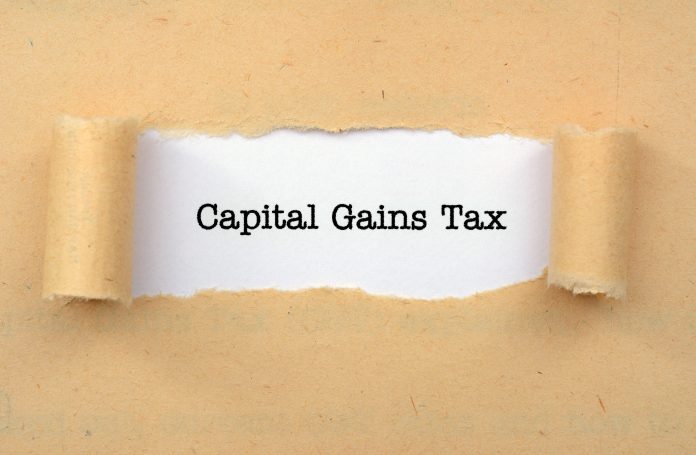Updated on 15.06.2022
The word indexation is commonly used when we talk about capital gains tax on property, gold, or debt investments. In other words, indexation is the process used to calculate capital gains tax on appreciation earned by selling capital assets other than Listed equity. Thus if a bond is invested in for its fixed
When you invest in some product for a defined and visible benefit then it’s not a capital asset, and thus will not generate any capital gains. Like if a bond or debenture is invested in for its fixed interest, then it’s not a capital asset, but when it is invested in to earn a profit by trading it in the Investments market than it is a capital asset.
Common capital assets include Equity shares/mutual funds, Tradeable debentures, bonds, Debt Mutual funds, Real estate, Gold. Whatever gain or loss comes out of selling these capital assets are termed as Capital gain/loss. The role of indexation comes in when there’s the long-term capital gain on capital assets other than equity.
What is indexation and how it helps in calculating Capital gains tax?
Basically, indexation is a process of adjustment of cost/purchase price of capital assets with Cost Inflation index. Through Indexation government allows the investor to adjust the effect of inflation on the Capital gains made on selling of property/asset purchased. In other
In other words, indexation helps in knowing that how much return has actually been eaten up by inflation and government reduces your Capital gains tax burden on that part. This way the gain earned gets reduced by the inflation adjustment which helps in tax saving. The effect of inflation is measured through cost
The effect of inflation is measured through cost inflation index number which is notified by the government for every financial year. There is an important change announced in budget 2017, where the Base period for calculating Indexed purchase cost has been changed from 1981 to 2001.
Confusing? Well, to understand all this you need to know about Cost Inflation Index first.
Cost Inflation Index is an Index notified by central government every year. This index is used to factor in the effect of inflation on capital assets. It used to start from FY 1981-82, which means that any property bought after 1981 has an index figure to calculated the inflation-adjusted cost to calculate capital gains tax. But if a property was bought before 1981, then the same needs to be valued based on the valuation report of the registered valuer, which would be termed as fair market value.
Now from FY 2017-18, the base year of cost inflation index has been changed to 2001. Means that if the capital asset was bought before 2001 then its valuation will be taken at fair market value to calculate capital gains tax.
New Cost Inflation Index as announced in FY 2017-18
| 2001-02 | 100 |
| 2002-03 | 105 |
| 2003-04 | 109 |
| 2004-05 | 113 |
| 2005-06 | 117 |
| 2006-07 | 122 |
| 2007-08 | 129 |
| 2008-09 | 137 |
| 2009-10 | 148 |
| 2010-11 | 167 |
| 2011-12 | 184 |
| 2012-13 | 200 |
| 2013-14 | 220 |
| 2014-15 | 240 |
| 2015-16 | 254 |
| 2016-17 | 264 |
| 2017-18 | 272 |
| 2018-19 | 280 |
| 2019-20 | 289 |
| 2020-21 | 301 |
| 2021-22 | 317 |
Recently 2022-23 CII has been announced as 331.
Let’s understand Indexation with an example:
Ajay purchased a Residential house in Feb’2003 for Rs 10 lakh and sold the same house in Oct’ 2012 for Rs 40 lakh. What would be the taxable capital gain in this case?
Solution:
Purchase date: Feb’03 (FY 2002-03) – CII is 105
Sale date: Oct’12 (FY 2012-13) – CII is 200
Total capital gain: Sale price – purchase price i.e. Rs 40 lakh- Rs 10 lakh = Rs 30 lakh
Taxable capital gain: Sale price – Indexed purchase price i.e. Rs 40 lakh – Rs 19.04 lakh = Rs 20.96 lakh
Indexed purchase price = Purchase price / CII for Purchase year*(CII for sale year)
=10 lakh / 105*(200) = 19.04 lakh
This way you can very well see that after indexation the taxable gain gets reduced by around 9 lakh. Thus the capital gains tax would be calculated on Rs 20.94 lakh rather than on Rs 30 lakh.
Some important points on capital gains tax related to indexation:
- Indexation applies only in the case of calculating Long-term capital gains tax and that too in non-equity or Non- equity related assets.
- The definition of long-term varies in different assets like in the case of debt products and gold (Physical or ETFs), the long term starts after the holding period of 3 years but in case of Real estate, the condition of holding period is reduced to 2 years from 3 years w.e.f Fy 2017-18
- The capital gains tax rate is 20% after indexation. It applies to all capital assets.
- In the case of property, you may not be required to pay capital gains tax @ 20%, as you have the option to buy capital gain bonds or another residential real estate.
Conclusion
Indexation is a very important concept to know as it helps in saving considerably on capital gains tax. This is because of indexation only, that debt mutual funds prove to be more tax-effective than traditional bank deposits.







 Manikaran Singal is the founder and Chief financial planner at Good Moneying Financial Solutions. He is a CERTIFIED FINANCIAL PLANNER CM and SEBI registered Investment adviser (Regd no. INA 100001620). He’s having 20+ years of experience in financial services space.
Manikaran Singal is the founder and Chief financial planner at Good Moneying Financial Solutions. He is a CERTIFIED FINANCIAL PLANNER CM and SEBI registered Investment adviser (Regd no. INA 100001620). He’s having 20+ years of experience in financial services space.


Dear Manikaran,
Is tax on capital gains independent on which tax slab the person is in or there is a connection ? I mean will the person have to pay tax on capital gain even if he/she is in min tax slab ?
Regds
Sanjay
Sanjay, if the total income including all sources is less than taxable limit, then STCG will not be taxed but if the total income is more than Rs 2 lakh in case of individuals or 2.50 lakh in case of Senior citizens than than STCG part of income will be taxed on special rates i.e 15% (in case of equity) otherwise as per tax slabs.
Dear Manikaran,
Thanks. But my query was more on LTCG for debt funds. Will a person with total income less than 2 Lac have to pay tax on LTCG for debt funds ?
Thanks in advance.
Sanjay
Sanjay, same would be with LTCG of debt. If the total income is less than Rs 2 lakh which is no tax zone (as per current tax slabs), then in that case there will not be any LTCG tax even.
Dear Mani
I read entire text, no doubt it very good information for common person, but pl. see the text again I could not make out some thing as there was some co-fusion on sale and purchse value. I tried you but you were busy in traning session.Thanks
Dear Sir
Kindly guide me on the following issue.
I have a property for which I have incurred heavy cost on furniture which is completely attached to the building and hence not removable. Therefor while selling the property can I get the benefit under Indexed Cost of Improvement.
Dear Sir,
If i own a property jointly with my son and i sell one house indepently own by me and i by capital gains bond of full proceed. Will i get benefit of capital ains tax. I do not own any other property?
Yes, you may buy capital gain bonds to save LTCG.
I purchased a house plot prior to 2001 i.e in 1995. It is informed in your article that in that case, fair market value is to be taken into account. I could not understand the same. Please explain the same with an example.
I am quite confused about intexation concept
If you are confused, you should take help of a professional. That is why there are professionals, you cannot be an expert in everything:)
I am a professional lawyer and want to buy a commercial office space for my office by selling my residential property. Do professionals like me have some tax benefits in such cases? please answer me on my mobile no.9878602013